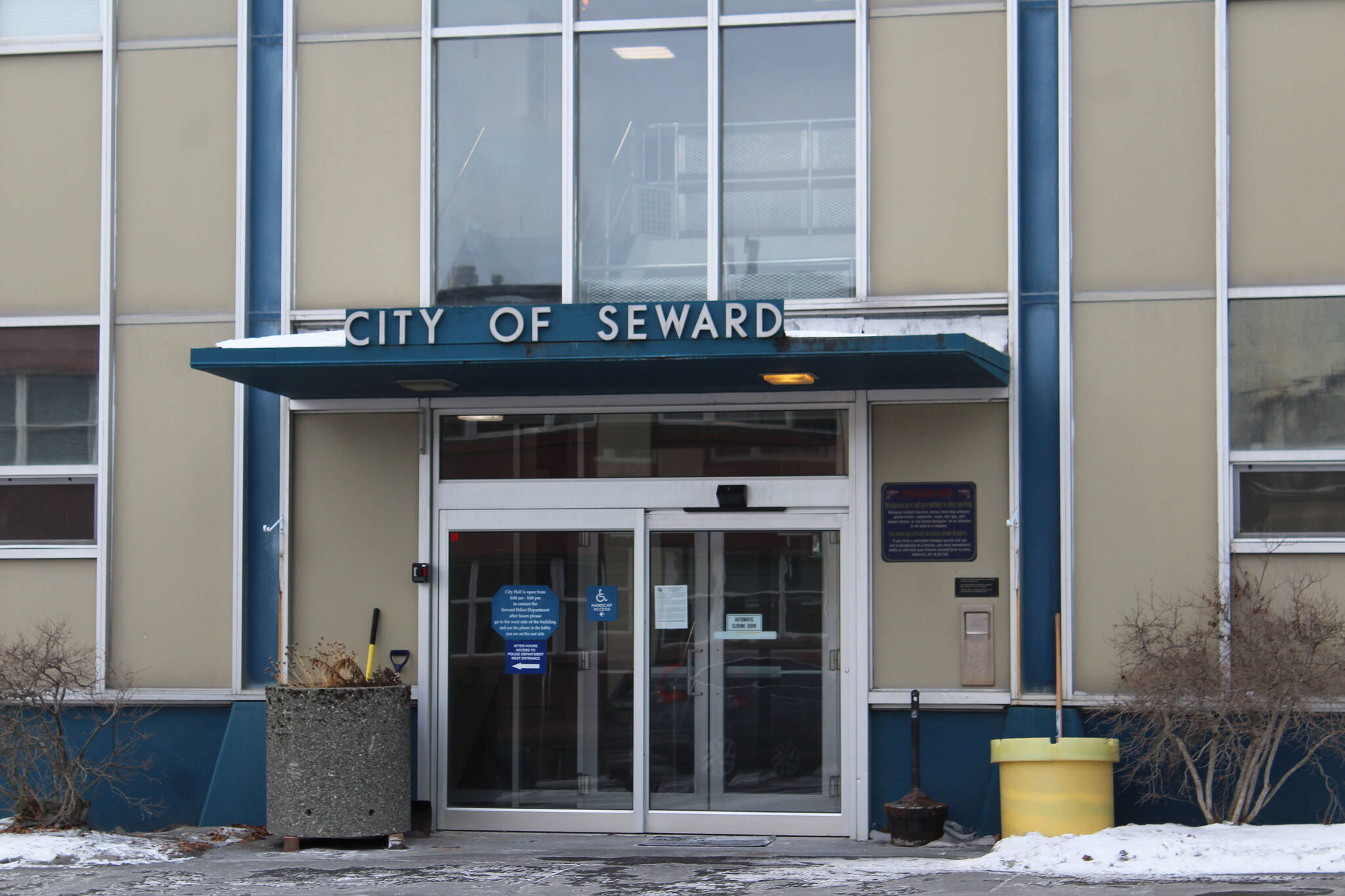The Seward City Council will have final say in whether or not the city’s historical preservation commission must pay back $7,200 in donations that the city says the commission was not authorized to solicit.
The funds were received by the Seward Historic Preservation Commission as part of the group’s efforts to establish a walking tour of historic properties in Seward.
The City of Seward received and accepted a grant from the Alaska Historic Preservation Fund last year. That grant awarded $17,925 for the project contingent on a $3,970 city match and 300 hours of in-kind volunteer hours, according to a Feb. 10 memo written by Seward City Clerk Brenda Ballou.
The same memo, however, goes on to say that, on June 4, 2021, a “private campaign” was started by some members of the commission to solicit public donations “for the purpose of covering what they believed could be potential funding shortfalls.” The action, Ballou wrote, was not deliberated by the commission or authorized by the city council. In all, $7,200 was raised by 16 donors with contributions ranging from $100 to $1,500.
“Addressing a budget shortfall by soliciting contributions from the public is a city council decision,” Ballou wrote in the memo.
A special meeting of the Seward Historic Preservation Committee was held Feb. 10 to address the incident. Ballou’s memo recommended that the commission “take ownership” and “correct” the situation by returning the funds and draft an accompanying letter explaining why the donations were being returned.
Ballou said during the Feb. 10 special meeting, however, that commissioners could alternatively draft a resolution to be given to the city council asking that they be allowed to keep the $7,200. Ballou told commissioners that while there was no “ill intent” regarding the solicitation of funds, it is against Seward City Code for the commission to solicit money without approval from the city council.
“There was absolutely no ill intent with what happened with the solicitation of public funds,” Ballou said. “But it simply is against code for the commission to solicit funds without the authorization of city council.”
Ballou said she consulted with the law firm that serves as Seward’s city attorney and the firm similarly felt the solicitation of funds violated city code. If the commission felt that it was running short on funding, Ballou said, the proper procedure would have been to request permission from the city council to raise more money or to request a budget increase from the council.
“Again, there was no bad intent,” Ballou told commissioners. “I know that, but we’ve got to get the record straight with these funds.”
Multiple commissioners pushed back on assertions made about how the $7,200 was raised and said city employees had ample opportunity to intervene if they suspected proper procedure was not being followed.
Commission Chair Cheryl Seese said the special meeting “blindsided” the commission and that claims the commission solicited public funds without authorization were “disappointing and untrue.” Seese said she does not believe it is the responsibility of commissioners to know city code outside of the commission’s mission statement.
“At this point, our commission moved on believing that we had accomplished what the city wanted regarding the fundraised donations,” Seese said. “This too would have been, and should have been, the time that the city attorney weighed in to advise the commission of any missteps.”
Commission Vice Chair Sue Ward said the authority of the commission to raise funds for the project is described in the grant approved by the city council. The council approved the grant statements when they approved the grant itself, Ward said.
“We cannot be faulted for actually reading and implementing the grants required as written,” Ward said. “In the absence of advice otherwise, that would indicate approval by city council. To label this an unauthorized solicitation of public funds is not accurate and is misleading.”
Commissioner Mary Ann Benoit said the City of Seward should take some ownership as well for not intervening if employees knew protocol wasn’t being followed.
“I feel like the truth has been portrayed or slanted, in a way, to kind of draw attention away from the fact that the city may not have provided adequate or timely advice through staff regarding the city code,” Benoit said. “In an effort to avoid taking ownership of that, everybody else kind of got blamed for this problem. … It’s not fair, I don’t think, to treat volunteers who have spent thousands of hours making the city a better place through a great project … like rule breaking children that need to be chastised in public.”
The commission ultimately voted to draft a resolution to the Seward City Council requesting that they be allowed to retain the $7,200 in funds.
The Seward Historic Preservation Commission’s Feb. 10 meeting can be viewed in full on the City of Seward’s YouTube channel.
Reach reporter Ashlyn O’Hara at ashlyn.ohara@peninsulaclarion.com.

